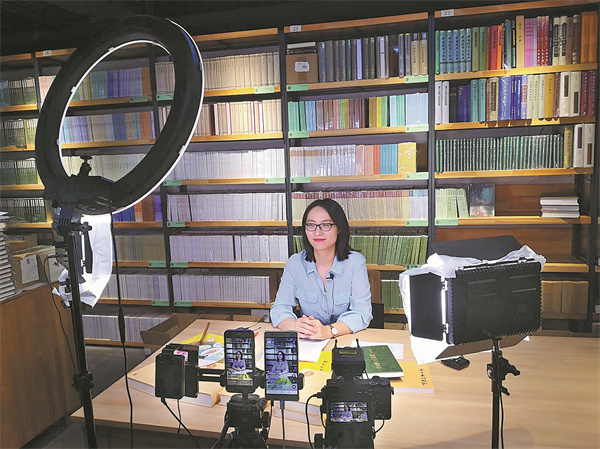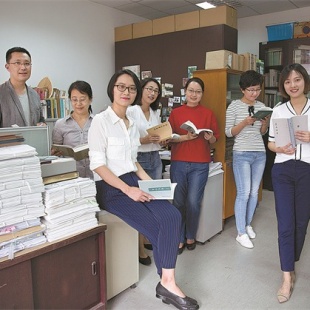Making page-turners


Hu sensed her knack for editing at her academic standards class. She always did well in the tests. Moreover, she realized that many of her peers-and even some faculty members-faced difficulties comprehending ancient books that were not properly collated.
She decided to pursue a career in ancient Chinese literature and history, and contribute to carrying forward the quintessential culture of her country. "I figured my work might help others do better research," she says.
During her internship at the company's history division in the third year of her postgraduate studies, Hu saw her employers put considerable emphasis on publishing ancient texts. She made the book firm her first choice when it came to finding a job.
Hu recalls how the initial couple of years felt like she was "back in college".She realized it was hardly enough to rely on her knowledge from class to review ancient manuscripts or academic books based on them.
Most editors engaged in the publication of old books have a solid background of ancient Chinese literature, history and philology. "They all know their way around classical Chinese characters and texts," she says.
In addition, the job requires a working knowledge of multiple fields, including bibliography and collation. When dealing with manuscripts, Hu and her colleagues often encounter unfamiliar terms, which send them on a frantic search through reference books and databases.
The book company arranged for Xu Yimin, a senior editor and philology expert, to mentor Hu. In the interim period, Xu published a monograph on interpretation of ancient book collation. It systematically introduces the theory and specific working methods of how to collate ancient texts. "I still refer to it, particularly when I have to find the best place for the original image of an ancient book," Hu says.
To date, the publishing house has finished 62 out of 241 previously edited volumes that make up Twenty-four Histories, a collective term used for the 24 officially compiled books that are often considered an authoritative source of traditional Chinese history and culture. These are used for research on a wide range of subjects, including literature, art, music, science, military affairs and geography. "There is still a lot for me to do and learn," Hu says.
A total of 11 books in the series have been collated and published since the Twenty-four Histories project was launched in 2006, including the Records of the Grand Historian, the Canonical Book of the Sui Dynasty and the Canonical Book of the Chen Dynasty.
Fudan University professor Chen Shangjun, who joined the revisions of the Canonical Book of the Sui Dynasty, describes his experience as going through an "academic drill".He suggests that discussions about all revisions be henceforth printed and filed for future reference.





































